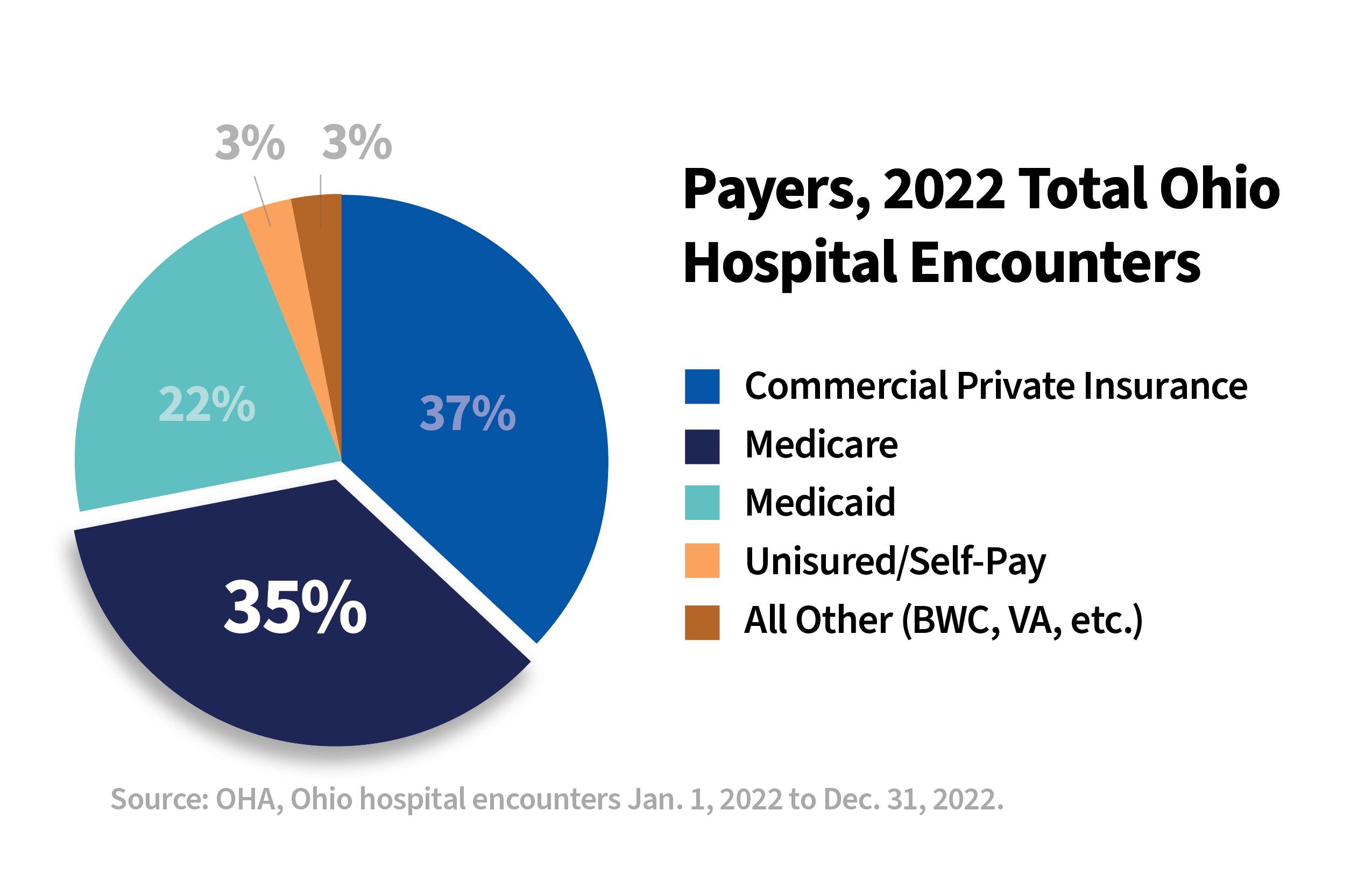Medicare
Medicare
Medicare is the federal health insurance program for Ohioans who are 65 or older, certain younger people with disabilities and people with end-stage renal disease. Nearly 2.5 million Ohioans, or more than 20% of the state’s population, are enrolled in Medicare. Of those 2.5 million Ohioans, more than 86% of Ohioans enrolled in Medicare are age 65 or older.

Medicare assists in paying for hospitalizations, physician visits, prescription drugs, post-acute care, skilled nursing facility care, home health and hospice care and preventive services.
Finance News – Medicare
Connect here to view Medicare-specific Finance News prepared by OHA’s Health Economics & Policy team.
Medicare and Ohio Hospitals
Medicare was the payer in 35% of the more than 36 million patient encounters at Ohio hospitals in 2022 — but reimburses about 87 cents for every dollar of care provided to Ohio’s elderly and disabled patients. The federal government annually sets these rates, leaving hospitals with minimal negotiation power. Ohioans fund Medicare through payroll and self-employment taxes.
Various Elements of Medicare
Most hospital services are fully covered or partially covered by Medicare. Beneficiaries often choose to obtain supplemental insurance plans for services and items not covered by Medicare. These plans include:
- Hospital Insurance (Part A): Covers inpatient hospital services, nursing home care, home health care and hospice. Part A coverage is automatic for beneficiaries and is financed by a payroll tax on employers and employees.
- Supplemental Medical Insurance (Part B): Covers any outpatient services, laboratory tests, physician services and medical supplies. Part B is optional coverage and is generally paid through beneficiaries’ monthly premium.
- Medicare Advantage (Part C): Optional and paid through premiums, this includes private plans, such as managed care plans, that offer Parts A, B, & D benefits, often in conjunction with additional benefits.
- Prescription Drug Coverage (Part D): This optional program provides coverage to help seniors pay for prescription drugs.
Medicare DSH Payments
Medicare Disproportionate Share Hospital Program, or DSH, payment adjustments compensate hospitals for the higher operating costs they incur treating a large share of vulnerable low-income patients. DSH funds preserve access to care for Medicare and low-income populations by financially assisting the hospitals they use.
Low-income Medicare patients tend to be sicker and more costly to treat than other Medicare patients with the same diagnosis. Higher costs also result from the need for additional staffing and services, such as translators and social workers, to care for low-income patients.
Ohio hospitals earned $318 million in DSH payments in 2022, yet still posted a loss of $1.94 billion on services provided to Medicare beneficiaries based on the federal reimbursement rates.
OHA Contact
Quyen Weaver
Senior Director, Health Economics & Policy